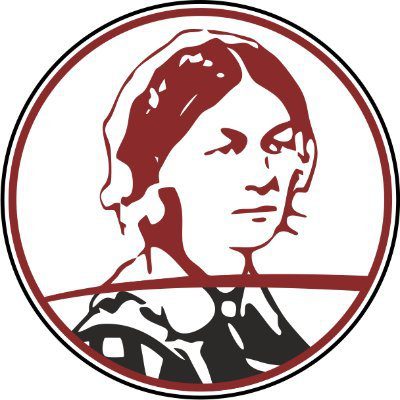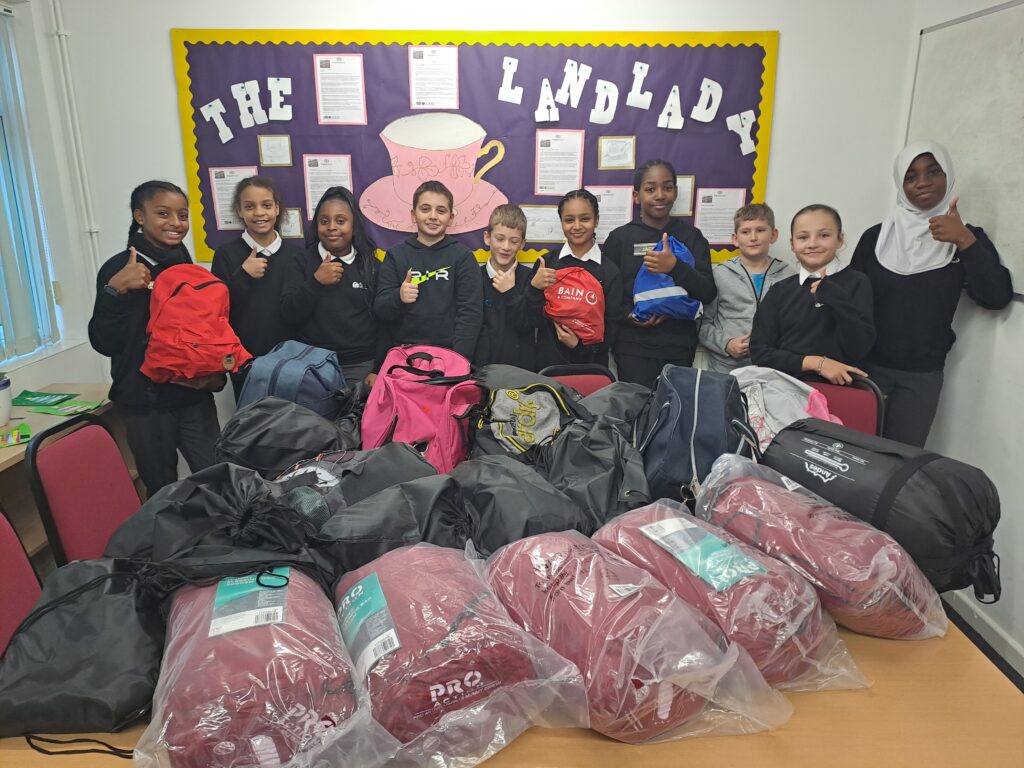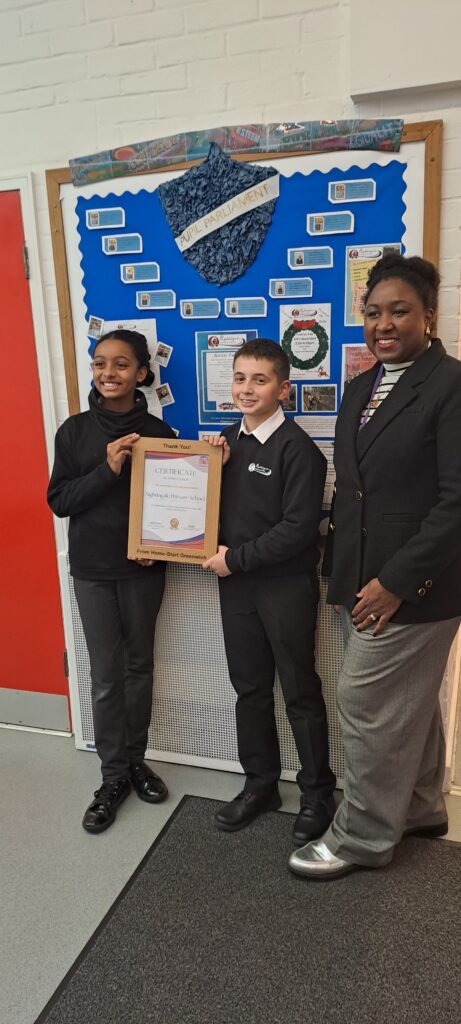Nightingale Primary School
Nightingale Primary School has been named the overall winner of The Social Impact Schools Award, as well as State, Primary, and London School of the Year. In this case study, Child Welfare Officer Lisa Risby shares how pupils are leading thousands of acts of social action and building a culture of kindness beyond the classroom.

Can you tell us a bit about Nightingale Primary School and the community you serve?
Nightingale is a one-form entry school with around 225 pupils, right in the middle of three council estates in Woolwich. We’re a proudly multicultural community, with children from many ethnic backgrounds, including service families and those resettled through the Afghan scheme. Some of our families live in temporary accommodation, travelling over an hour each day to stay part of our school.
Despite these challenges, our children achieve outstanding academic results. In 2024–25, 83% of our Year 6 pupils met the expected standard in reading, writing and maths combined, compared with 62% nationally. In maths, an incredible 97% reached the expected standard. These results show what can happen when children feel safe, supported and inspired. Our motto is “ Unlocking the full potential in everyone ” — and social action plays a huge part in helping pupils reach that potential.
How have you built such a strong culture of kindness and social action at Nightingale?
For us, kindness is not an “extra” — it’s embedded in our school culture. Children are taught from the start that being part of Nightingale means looking out for others, taking responsibility and making change happen.
Our Pupil Parliament is central to this. Each year, children put themselves forward through videos and speeches, sharing why they want to serve. They campaign on issues like wellbeing, mental health, sport and community. Elected ambassadors act as role models — helping with playtimes, supporting with restorative conversations when minor conflicts arise, and running fundraising stalls.
Crucially, children see social action as something exciting and natural. Many of our projects are initiated by them — ideas that grow into whole-school movements.
Can you share some examples of the social action projects your children have led?
Our children’s creativity and compassion shone through the range of projects they’ve pioneered:
- In school: Pupils came up with a tradition of handing down their jumpers to the year group below — Year 6 to Year 5 and Year 4 . What could have been a financial worry for families — buying a new set of uniform — became a joyful event that saved parents money and built connections between pupils. Because it was completely pupil-led, it showed how deeply embedded social action is in our school culture.

- Locally: Pupils led our “Back to Kindness” campaign, packing over 200 rucksacks of essentials for people experiencing homelessness. Families donated items, but it was the children who spent their Saturday preparing packs, learning about homelessness and thinking about safe ways to help. Pupils also worked with the Abbey Wood War Memorial to create plaques for a new children’s memorial, designing symbols to honour lives lost and exploring themes of illness and bereavement.
- Nationally: Our children hosted a sleepover at school, learning directly from charities about homelessness and making winter packs for local homeless people. They also regularly researched and fundraised for national causes such as holding a sponsored silence.
- Internationally: Pupils organised collections that sent two shipping containers of classroom furniture and stationary to Sierra Leone. When photos arrived of children abroad using their desks, our pupils saw first-hand the global impact of their actions. Year 6 also created safeguarding displays to share with the school in Sierra Leone, tackling issues such as sexual violence against girls — using their voice to protect others.
What difference has taking part in the Social Impact Schools Award made for you and your community?
The award gave our children the recognition they deserve. Social action is so embedded here that pupils often don’t realise how remarkable their actions are — they just see it as “what we do at Nightingale.” Being part of the award has helped us all pause, reflect and celebrate.
Children now come to us saying, “I’ve done this, can you log it?” They take ownership of recording their kindness as much as doing it. For our staff, it’s been a moment of pride to see children’s leadership acknowledged on a bigger stage. Parents too have been inspired — many message us even during school holidays, sharing how proud they are of their children’s involvement.
Most importantly, the award helps ensure that social action isn’t seen as a one-off project but as part of a child’s identity. Many of our alumni return year after year to take part in events like the “Back to Kindness” campaign. That lasting legacy — children who continue to act with compassion beyond primary school — is the true impact of this work.
